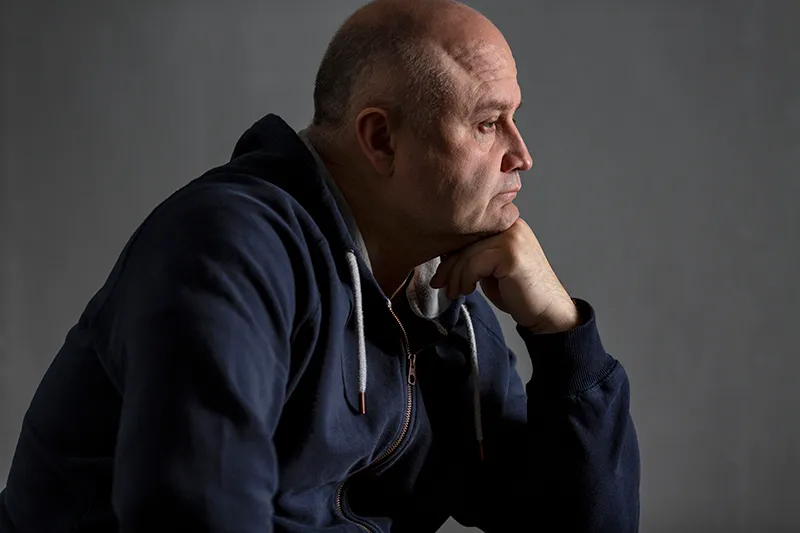Male wellbeing – why bother?

Blog post written in partnership with Dr. Roger Prentis at RDP International
“It’s nothing – I can sort it”
“I don’t want to appear weak”
“It’ll go away”
“I don’t want to make a fuss”
“I don’t want to admit that I need support”
Recognise any of the above? They are typical views of many males with regards to their health and wellbeing. Male wellbeing is seriously overlooked.
Did you know that men die on average six years earlier than women, and for reasons that are preventable such as suicide and prostate cancer? 75% of all UK suicides are male. Men in the UK are currently twice as likely to have diabetes, they are more likely to be overweight or obese, to smoke, eat unhealthily and drink dangerous amounts of alcohol.
Evidence suggests that men are more likely to neglect their emotional and physical wellbeing. They typically find it more difficult than women to build social connections and share concerns about their health. Many men suffer in silence because of stigma and stereotypes such as ‘boys don’t cry’ and ‘man up’, and the consequent fear of discrimination. However, males are generally significantly less likely to admit that they have problems or, even if they do, to do anything about their problems.
Does that mean we should do nothing? Why bother?
You decide – do you want to look after and value your employees by putting things in place to help avoid health-related absences, presenteeism, stress and all the consequences for your staff and your business?
The cost of doing nothing is clearly huge in comparison to actively encouraging male staff to look after their wellbeing by giving them information, knowledge and opportunities. In addition to the duty of care towards all employees (and it being the right thing to do!), it makes good business case to support men’s health in the workplace and encourage males to look after their wellbeing. There’s the costs to the business – financial cost, reputational cost and your customer’s and other stakeholder’s views of your business.
On average, for every £1 invested in mental health interventions in the workplace, £5 is saved. (Deloitte, Mental health and employers: refreshing the case for investment, 2020). Poor mental health among employees costs UK employers £42bn – £45bn each year (Mental Health Foundation, The economic case for investing in the prevention of mental health conditions in the UK, 2022). As long ago as 2009, the Sainsbury Centre for Mental Health found that, “Better mental health support in the workplace can save UK businesses up to £8 billion annually”.
What can you do as an employer?
Wellbeing isn’t only mental and emotional wellbeing, it includes physical and nutritional wellbeing. In fact, they are all inextricably linked. If any is out of balance, it will most likely affect other things. And this is accentuated with ageing.
In order to help you support your male staff going through midlife transition, the Wellbeing at Work programme is offering to all registered employers four free places on the Wellbeing for Men training on 16th October from 1 – 4.30pm at the Welcome Building in Eastbourne, delivered in partnership with RDP International. You can book your places HERE.
This half-day session is for all men who want to empower and support themselves as they age and for anyone in a position to support others (such as HR professionals, team leaders, line managers, etc) with an interest in the topic.
The training aims to provide evidence-based information and knowledge to support males to adjust their lifestyle to prevent the main health issues they are prone to as they age such as prostate cancer, diabetes, hypertension, stress, depression and eventually suicide. The content focus on what happens to men when they age, the impact of this on their health and wellbeing, and how men can support themselves and others. It covers nutrition and supplements, the benefits of physical activity, how to manage stress and overwhelm to improve mental health.
Where can male employees go for further support?
Another easy and yet very important thing you can do as an employer is to promote some male-specific support services to in the workplace such as:
- Mankind Support Group in Eastbourne
- Men’s Mental Health Project in Hastings
- Other Local Support Services for Men Leaflet
- Men’s Health Forum
- Preventing Male Suicide in Sussex
- Prostate Cancer UK
- East Sussex Recovery Alliance (drug and alcohol recovery service, not specific for men)
- One You East Sussex (nutrition and physical activity support, not specific for men)
Thank you for taking the time to read this blog. Anything you can do to support male employees to look after their health and wellbeing is a great step forwards. If you would like more information about men’s health, please contact the Wellbeing at Work team at healthy.workplace@eastsussex.gov.uk or RDP International at info@rdp-int.com
